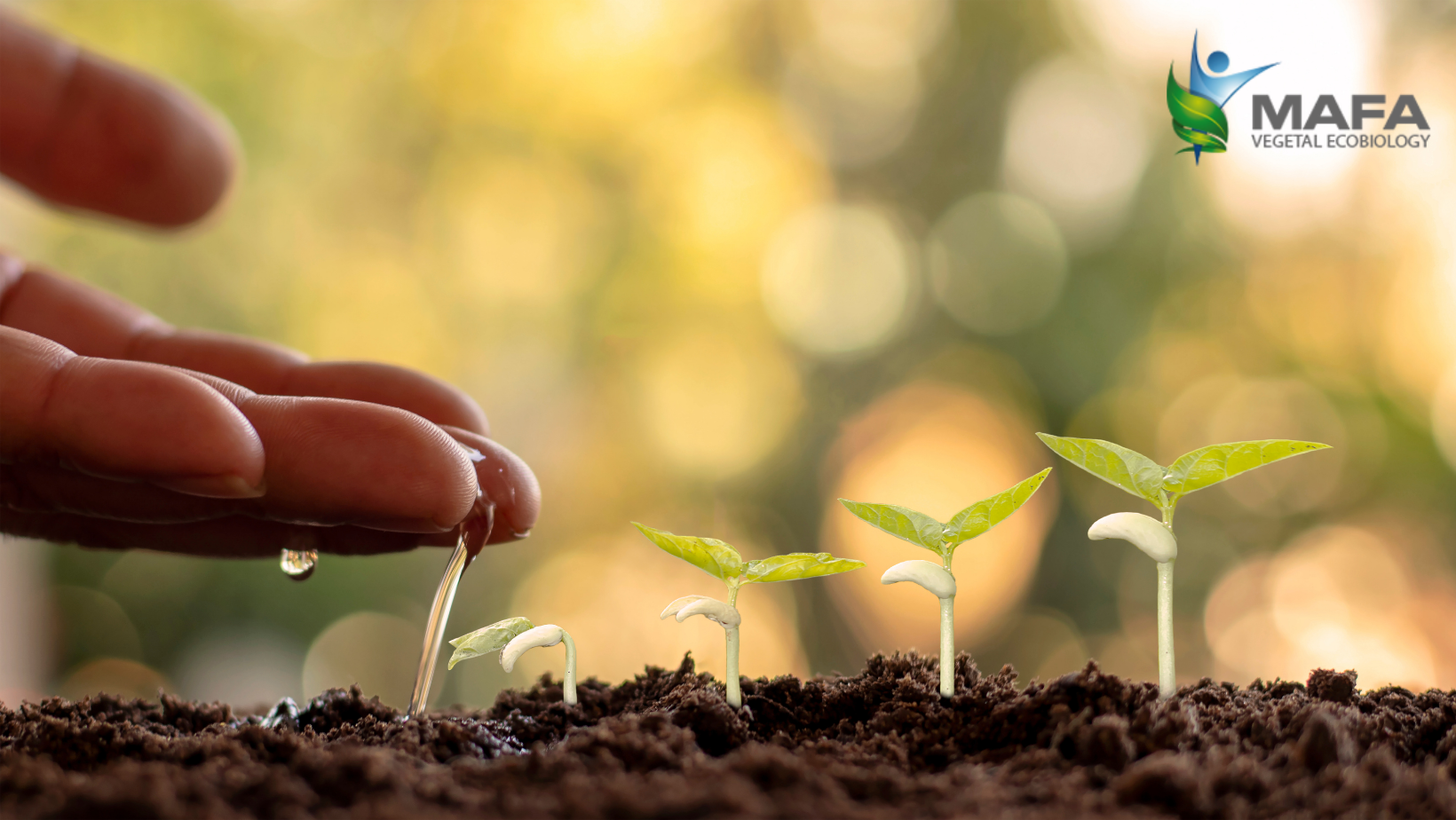Just as it is important for people, the health of agricultural soil is an essential part for the yield of our crops and, of course, for the quality of their products. Although it is in a synthetic way, we propose 3 reasons to know and protect the health of agricultural soil. Yes, it is just as important to protect and care for it to keep it in optimal condition and also to understand its condition. Only in this way we can know what it needs, what it lacks and what solutions we can give to what is needed to stop harming the development of our plants and trees.
But before giving those reasons, how about we consider what we can define as a healthy soil.
IDEAL PROPORTION OF A HEALTHY SOIL
- Minerals
- Organic material
- Water
- Air
- Minerals
- Organic material
- Water
- Air
What is a healthy soil?
According to the Food and Agriculture Organization of the United Nations (FAO ), a healthy soil is a living and dynamic ecosystem, full of organisms that perform many vital functions such as:
- they transform inert matter and minerals into nutrients for plants;
- control plant diseases, insects and weeds;
- they improve the capacity of retention of water and nutrients;
- improve crop production;
- and contribute to mitigating climate change by maintaining or increasing their carbon content.
 Reasons to protect soil health
Reasons to protect soil health
1 Soil salinity is increasing
According to the FAO, around 400 million hectares can be classified as saline, a worrying figure considering that the food production will have to increase by at least 70% to feed the world population in 2050.
What are the possible solutions?
Create low salinity water reserves, research technologies to reduce the impact of salinity, monitor the quality and quantity of applied and available water, and use zero residue biofertilizers to reduce soil salinity are some of the solutions.
2 Agricultural soils act as a nutrient reservoir for crops
Each of the macronutrients and micronutrients that plants need for their life cycle has their specific functions at each stage of their development. The supply of nutrients must be balanced and for this there are products designed with the appropriate proportions for each situation. Among them, there are elements highly essential as nitrogen.
To consider…
There is a large literature on fertilization recommendations, such as this one from the Ministry of Agriculture. Also it is also interesting to analyze the soils and take into account 4 parameters:
The texture, which is essential to know the retention of nutrients.
The pH, that is, if they are acid or alkaline soils and how they will react with certain inputs.
Electrical conductivity, related to soil salinity.
And the presence of nutrients of both macronutrients (nitrogen, phosphorus, potassium, calcium and magnesium) and micronutrients (iron, boron, manganese, zinc, molybdenum and copper).
3 The process of plant growth depends on the fertility of the soil
The balance of ecosystems contributes to healthy and optimal soils for crops. In fact, the organic matter that is produced as a result of food chains remains within the system.
The soil is completely alive and countless macro and microscopic organisms live in it. Bacteria, fungi, actinomycetes, protozoa, algae and many invertebrates confirm that the organic base of our substrate will condition its fertility and sustainability as agricultural soil. To the point that any imbalance in this regard will significantly affect the performance and properties of the floor.




